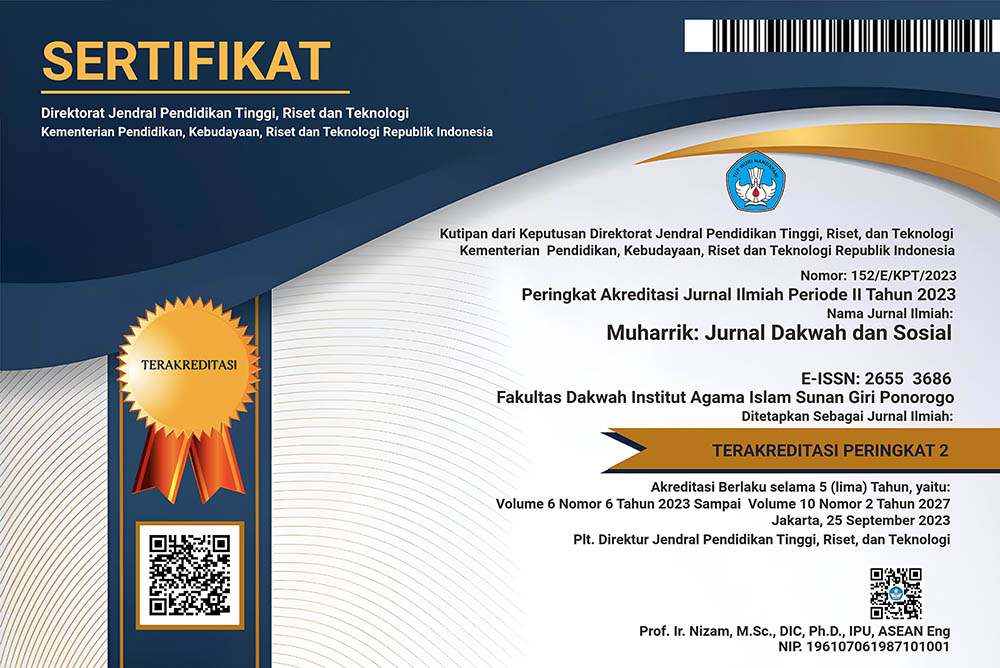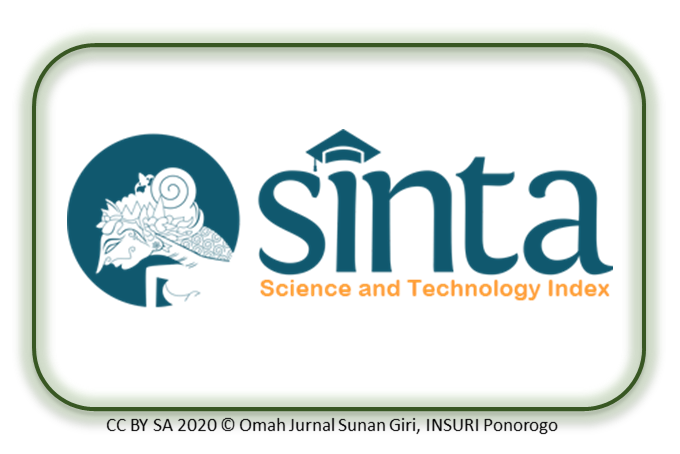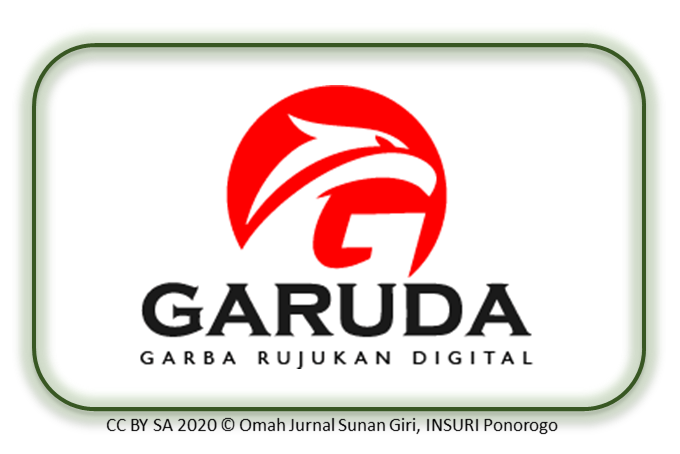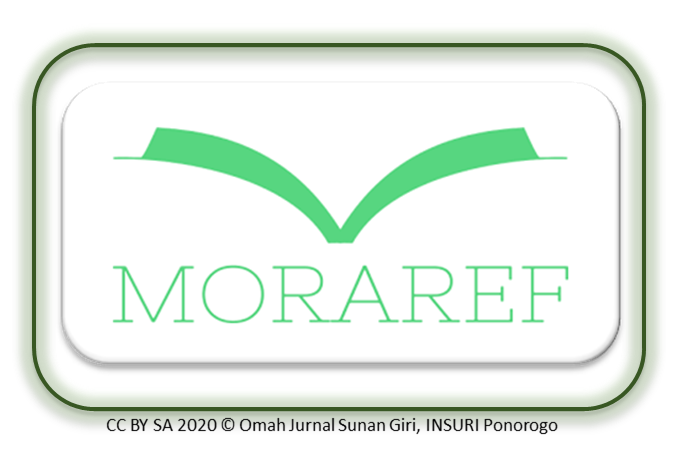Da'wah Based on Socio Cultural Capital in the Prevention of Radicalism and Religious Conflict
DOI:
https://doi.org/10.37680/muharrik.v6i2.3624Keywords:
Social Capital, Cultural Capital, Radicalism, Religious ConflictAbstract
This study focuses on the growth and development of radicalism in the Lamongan Regency area and the forms and variants of co-religious conflicts in the Tuban Regency area. These two focuses do not intend to compare Lamongan and Tuban as study destinations but explore the two regions with different questions. The next focus is the da'wah model based on socio cultural capital in preventing radicalism and religious conflicts in Lamongan Regency and Tuban Regency. This research uses a qualitative approach with the type of grounded theory according to the stages of the type of research. Socio cultural capital is diverse and meaningful, stretching from the potential of natural resources, economy, culture, customs, arts, and religion. The results of the analysis show that the dominant factors that cause the growth of radical ideas in Lamongan Regency are limited religious knowledge and insight, mistakes in choosing teachers, low levels of economic welfare, provocation of online media, sectarianism, disappointment with social, political, economic and legal conditions, and weak government control over educational institutions and pesantren affiliated with radical groups. The form of religious conflict that occurred in Tuban Regency was a peaceful action, which is an action carried out by Muslims without violence in order to address sectarian and communal issues. The socio cultural capital of the Lamongan and Tuban communities has a diversity ranging from the potential of natural resources, economy, culture, customs, arts, and religion, giving birth to five da'wah models for preventing radicalism and religious conflicts. The five da'wah models in question are economic-based, institution-based, village-based mosques, pesantren, and based on local wisdom.
Downloads
References
Alimuddin, N. (2007). Konsep Dakwah Dalam Islam. HUNAFA: Jurnal Studia Islamika, 4(1), 73–78.
Bourdieu, P. (1992). Three approaches to social capital. Retrieved From.
Bourdieu, P., & Richardson, J. G. (1986). Handbook of Theory and Research for the Sociology of Education. The Forms of Capital, 241, 258.
Coleman, J. S. (1988). Social capital in the creation of human capital. American Journal of Sociology, 94, S95–S120.
Dahrendrof, R. (1986). Konflik dalam Masyarakat Industri: Sebuah Analisa Kritik. Jakarta: Rajawali.
Efendi, B. (1998). Islam dan Negara. Jakarta: Paramadina.
Farihah, I. (2019). Perilaku Beragama Perempuan Ngorek di Pesisir Lamongan. Sawwa: Jurnal Studi Gender, 14(2), 191–206.
Feddes, A. R., & Gallucci, M. (2015). A literature review on methodology used in evaluating effects of preventive and de-radicalisation interventions. Journal for Deradicalization, 5, 1–27.
Fukuyama, F. (2002). Trust: kebajikan sosial dan penciptaan kemakmuran. Language, 19(563p), 24cm.
Hadiyanto, A., Anggraeni, D., & Ningrum, R. M. (2017). Deradikalisasi Keagamaan: Studi Kasus Lembaga Dakwah Kampus Universitas Negeri Jakarta. Jurnal Pendidikan Islam Rabbani, 1(1).
Haris, M. A. (2020). Pandangan dan Konsep Deradikalisasi Beragama Perspektif Nahdlatul Ulama (NU). Risalah, Jurnal Pendidikan Dan Studi Islam, 6(2), 305–318.
Hasmy, A. D. (1997). Dakwah menurut al-Qur’an. Jakarta: Bulan Bintang. Hal, 18.
Helmy, M. (1973). Dakwah dalam Alam Pembangunan. Semarang: CV Toha Putra.
Khamdan, M. (2015). Rethinking Deradikalisasi: Konstruksi Bina Damai Penanganan Terorisme. Addin, 9(1).
King, V. T. (2008). The sociology of Southeast Asia: Transformations in a developing region (Vol. 3). Nias Press.
Munir, M. (2021). Manajemen dakwah. Prenada Media.
Puspianto, A. (2020). Strategi dakwah masyarakat kota. An-Nida’: Jurnal Komunikasi Dan Penyiaran Islam, 9(1), 42–64.
Putnam, R. D. (2002). Democracies in flux: The evolution of social capital in contemporary society. Oxford University Press, USA.
Sukarman, S., Raharjo, R., & Syukur, F. (2019). Deradikalisasi Agama di Era Digital Melalui Pendidikan Islam Multikultural. Journal of Islamic Studies and Humanities, 4(2), 171–186.
Sulhan, M. (2018). Deradikalisasi Islam Indonesia: Studi pemikiran Islam Nahdlatul Ulama.
Sulthon, M., Syukur, H. M. A., & Abdushomad, M. A. (2003). Menjawab tantangan zaman: desain ilmu dakwah: kajian ontologis, epistemologis dan aksiologis. Pustaka Pelajar diterbitkan atas kerjasama dengan Walisongo Press.
Usman, S. (2018). Modal sosial. Pustaka Pelajar,.
Zaidan, A. K. (1979). Dasar-dasar ilmu dakwah. Media Da’wah, Jakarta.
Zaini, A. (2018). Dakwah dan pemberdayaan masyarakat perdesaan. Jurnal Ilmu Dakwah, 37(2), 284–301.
Zuhriyah, L. (2021). Deradikalisasi Dan Deliberalisasi Perpektif Aswaja: Mengurai Moderasi Islam Ahlus Sunnah wal Jama’ah. An Nahdhoh Jurnal Kajian Islam Aswaja, 1(1), 1–10.
Downloads
Published
How to Cite
Issue
Section
License
The author(s) retain/s the copyright and grant/s Muharrik: Jurnal Dakwah dan Sosial the first publication rights licensed under the Creative Commons Attribution-NonCommercial 4.0 International (CC BY-NC 4.0) , which allows others to access (search, read, download and quote), share (copy and redistribute the material in any media or format) and adapt (mix, modify and develop) works for legitimate non-commercial purposes, with recognition of the authorship of the work and its initial publication in this journal.













